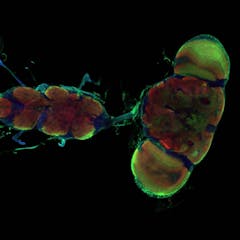
Articles on New research
Displaying 341 - 360 of 394 articles

Researchers had suspected that chemical hair relaxers might be behind racial disparities in breast cancer diagnoses. A new study narrows in on lye as a possible cause for that link.

Workers who filed complaints faced retaliation and rarely got a favorable result from the Equal Employment Opportunity Commission.

Food is not the only answer to food insecurity. Families struggling with severe disadvantage need adequate and ongoing financial protection to ensure their children have enough to eat.

A study found that poverty rates among households with at least one union member were significantly lower than nonunionized households.

Insight on how a unique protein plays a role in cellular stress responses may provide more clues on how to treat diseases like ALS and Alzheimer’s.

Gifted programs may have to revamp the way they operate in order to benefit all students, new research suggests.

About a quarter of census tracts with a post office lack a credit union or community bank, making the US Postal Service an efficient way to help more Americans get low-cost bank accounts.

When students feel their classrooms are supportive and fair, they behave better, a survey in Brazil found.

An experimental study found that the vast majority of women didn’t support a pay policy that corrected for an advantage they received, slightly more than men in the same position.

A meta-analysis of 437 studies found that egomaniacs aren’t just a bummer – they can be dangerous, too.

After completing a hands-on STEM program, students in Los Angeles were more likely to draw scientists as people of color or themselves instead of stereotypical white men in lab coats.

Sheriffs in less populated counties got bigger boosts from military surplus than sheriffs in more populated counties.

New research shows an ambitious state plan to broaden diversity at public universities is missing the mark when it comes to flagship universities.

DNA has been storing vast amounts of biological information for billions of years. Researchers are working to harness DNA for archiving data. A new method uses light to simplify the process.

New research shows that consumers are more likely to choose a plant-based meat option if they’re informed of their social benefits – or the environmental costs of beef consumption.

Chronic absenteeism is a pressing issue in high-poverty schools, but research suggests that serving students breakfast during class can help keep kids in school.

This finding was a surprise, since consumers actually seem to think liberals will provide better service.

At least half of Australians and New Zealanders in a recent study believed in one major conspiracy theory.

Long distances often preclude families in the Motor City from sending their kids to the best schools in the area, new research shows.

Adaptable neurons are tied to learning and memory but also to neurological disorders. By studying fruit flies, researchers found a mechanism that controls neuroplasticity.
